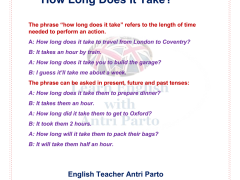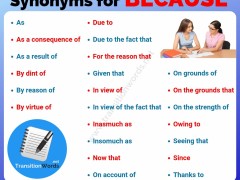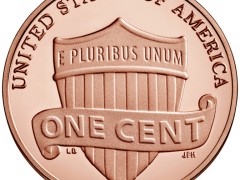believe [biˈliːv] v. 相信,认为
【派】believing 确信 believer 信徒
【扩】trust 信任,相信 lippen 相信
【搭】believe in 信任
* * *
A: I don't believe his words.
B: Why don't we go to see it ourselves?
A:我不相信他的话。
B:我们为什么不自己去看看呢?
* * *
may [mei] modal verb(用于请求许可)可以
how long 多长
since [sins] prep. 自从
【搭】ever since 从那时候起
* * *
A: You look as young as ever.
B: We haven't seen each other for years since our graduation. How have you been?
A:你还是跟原来一样年轻。
B:我们毕业后几年没见面了。你过得怎样?
* * *
why [wai] adv. 为什么
sell [sel] v. 卖,出售
because [biˈkɔz] conj. 因为
【扩】cause 因为 owing to 由于,因为 on account of 因为
【搭】because of 因为
* * *
A: Why not eat out together? We've just got paid today.
B: But I have to tighten my belt because I need to keep a big family.
A:那一块出去吃吧,我们今天刚发工资。
B:可我得节省钱,因为我还要养一大家子人呢。
* * *
retire [riˈtaiə] v. 退休
【派】retired 退休的 retirement 退休
【搭】retire from...从……退休
* * *
A: Bill will retire next year.
B: Who will take his place?
A:比尔明年退休。
B:谁将接替他的位置?
* * *
cost [kɔst] v. 花费
* * *
A: How much is this pen?
B: It's very cheap; it will cost you only eighty yuan.
A:这支钢笔多少钱?
B:很便宜,只要80元。
* * *
pound [paund] n. 英镑(£)
worth [wəːθ] prep. 值……钱
【派】worthwhile 值得的
【搭】be worth doing 值得做
* * *
A: Actually, it is not expensive. It is worth the price.
B: Do you mean you will take it?
A:事实上一点儿也不贵,物有所值。
B:您的意思是您买下了?
* * *
penny [ˈpeni] n. 便士
verb [vi. 不及物动词]相信;认为,猜想;信教 - If you believe someone or if you believe what they say or write, you accept that they are telling the truth.
think vs believe
I think… 我认为
I believe... 我相信并认为
- I also think…
- I still think…
- Do you think so?
feel: 感觉、认为
hold: 握住、坚持认为
consider: 考虑、认为
verb [情态动词]可能,也许(表示某情况是可能的);可以(征求同意或表示允许);可能(表示某情况属实,另一情况也属实);祝,愿(用于表达愿望);可以,能够(表明目的);可以,也许(用于提出礼貌的建议) - You use may to indicate that there is a possibility that something is true, but you cannot be certain.
noun [具体名词]山楂花;五月(May) - May is the fifth month of the year in the Western calendar. 5
noun [专属名词]多久:用于询问时间长度或持续时间。 - How long will the flight take?
- How long have you lived in Beijing?
- How long are you going to stay here?
- How long does this train stop here?
preposition [时间介词]自…以后,自…以来;(表示气愤)何曾,什么时候 - We've lived here since 1994.
conjunction [并列连词]在…以后,自…以来;因为,由于,既然 - She's been off work since Tuesday.
adverb [时间副词]自…以后,自…以来;此后,后来 - She's been off work since Tuesday.
since + 时间点
- She has been in Beijing since 2004.
since + n.
- She hasn't been out since the accident.
adverb [疑问副词](用于问句)为什么,为何;(反问,表示不必)何必;…的原因;为什么(不);为什么(表生气或恼火) - Why have you marked this wrong?
noun [抽象名词]理由,原因 - Explain why you didn't telephone.
interjection [惊讶]哎呀 - 'I wonder why?' she mused.
what/when/which/where/who/whose…
verb [vt. 及物动词]出让,转让;出售,售卖;以…价钱出售;促销,推销;有销路;说服,使接受;<古> 出卖,做交易;<古> 欺骗;用以销售(一定数量) - If you sell something that you own, you let someone have it in return for money.
noun [抽象名词]<非正式> 销售,出售;推销品,销售品;<非正式> 让人失望的东西;推销术 - If a shop sells a particular thing, it is available for people to buy there.
sell- sold- sold
sale n. 销售
- a big sale: 大甩卖
- for sale: 出 售
conjunction [关联连词](说明原因)因为,由于;(作出解释)因为 - He is called Mitch, because his name is Mitchell.
because of + n.\ pron.
- Because of you, I try my hardest just to forget everything.
- Because of the smog, everyone wears mask.
because+ 句 子
- I bought the house because it faced to the south.
- I said sorry because I hurt him.
verb [vi. 不及物动词](令)退职,(使)退休;(专业运动员)退役;(因受伤、生病而)退出比赛;使(击球手)出局;<正式> 退出,离开(去安静的地方);<文> 睡觉,就寝;(陪审团)退庭表决;<正式>(军队)撤退;命令(部队)撤退;停止使用,使报废;收回(票据,纸币),使停止流通;清偿,付清(债务) - At the age when most people retire, he is ready to face a new career.
noun [抽象名词]退休,退隐 - He is to retire on his sixtieth birthday.
retire = stop working = stop doing this
- He is getting old, He is going to retire. 他越来越老, 他打算退休了
- I'm going to retire next year. 我明年会退出影坛或歌坛
I'm so tired that I'm going to retire now. (retire = go to bed)
verb [vt. 及物动词](使)感到累,(使)感到疲劳;厌倦,厌烦 - If driving tires you, take the train.
noun [专属名词]<美>轮胎(同 tyre);头饰 - A tire is a thick piece of rubber which is fitted onto the wheels of vehicles such as cars, buses, and bicycles.
noun [抽象名词]价钱,费用;成本,开支;代价,损失;诉讼费用 - The cost of a loaf of bread has increased five-fold.
verb [vi. 不及物动词]价钱为,需花费;估算成本,估价;使丧失,使损失;使付出努力,使做不愉快的事;<非正式>使花许多钱 - If something costs a particular amount of money, you can buy, do, or make it for that amount.
主语是物+ cost \ take
- This shirt costs me¥300. 这件 T 恤衫花了我 300 元。
主语是人+ spend
- I spend ¥300 on this shirt. 我花 300 元买了这件 T 恤衫。
sth. costs (sb.) +金钱
- This pair of shoes costs me 30 pounds.这双鞋 30 镑。
sth. takes (sb.)+时间
- This journey takes two hours. 这段旅程得用两小时。
spend +时间 + 地点
- He spent twenty years in Beijing. 他在北京度过了 20 年的时光。
spend +时间 + with sb.
- She spent her weekend with her boyfriend. 她和男朋友一起度过了周末。
spend +钱 + on sth.\sb.
- He spent all his money on books. 他把所有的钱都用来买书了。
be + worth
- The apartment is worth three million now. 这套房子现在值 300 万。
- How much is your car worth?你的车值多少钱啊?
- It’s worth the money. 就值这个钱。
noun [专属名词]磅(重量单位);英镑(英国货币单位);一英镑纸币(或硬币),一镑纸币(或硬币);英镑与外币的比值(the pound);(流浪猫狗的)收留所,待领场;(违规停放车辆的)临时扣押场;镑 - They cost two dollars a pound.
verb [vi. 不及物动词]连续重击,猛打;(心脏)剧烈地跳动;(头)剧痛;脚步声沉重地走(跑);连续轰炸,猛烈袭击;捣碎,击碎;长时间苦干;<美,非正式> 快速地喝;<非正式> 彻底打败(对手);大声播放;监禁,拘留 - You were never a ninety-eight pound weakling.
adjective [原级]价值…的,值…钱的;值得的,具有…价值的;拥有…财产的;(尤指合同)毫无价值的 - They weren't worth four bits.
noun [抽象名词]价格,价值;重要性,作用;能用(一个星期、一个月等)的东西 - How much is this painting worth?
preposition [其他介词]价值…;值得 - That ring must be worth a fortune.
noun [专属名词]便士(英国货币单位,100便士等于1英镑);便士(英国1971年前使用的硬币,12便士等于1先令);分(美国和加拿大货币单位);一小笔钱(pennies);一分一毫(用于强调没钱)(a penny);迪纳里厄斯(古罗马的金币或银币) - Unleaded petrol rose more than a penny a gallon.
noun [专属名词]分(美元、欧元等的货币单位);<非正式>小钱;<非正式>分毫(用来强调没钱);(乐)音分 - I still don't feel a hundred per cent.
noun [抽象名词]出售,销售;销售额(sales);销售活动,(尤指)拍卖;降价出售,大减价;销售部门(sales);销售业务,销售工作(sales) - A sale is an occasion when a shop sells things at less than their normal price.














